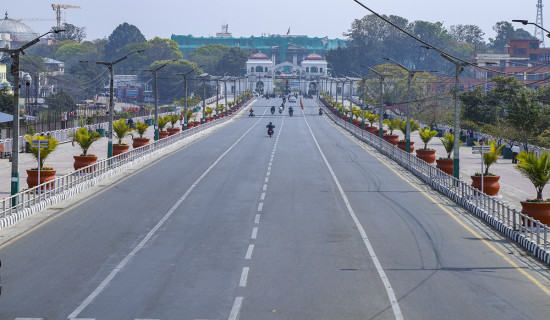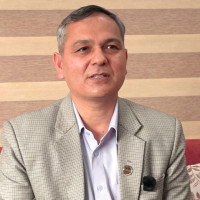- Wednesday, 4 March 2026
Mental Health Awareness
It is May, which is mental health awareness month. Throughout the world, people across all walks of life will be commemorating this month to advocate for mental health. This tradition was introduced in the United States in 1949 with the initiation of Mental Health America (MHA), which was then known as the National Association for Mental Health. Since then, when the calendar comes to May, there is a buzz among mental health advocates worldwide to promote psychological wellbeing and fight stigma surrounding mental disorders.
According to medical science, mental disorders occur as a result of changes and irregularities in the brain, such as too much or too little of neurotransmitters, aggravated by environmental factors, trauma and even genetics and chronic illnesses. Allopathic medicines aim to stabilise the neurotransmitters in the brain and are fast working but they tend to generate unwanted side effects. Many people thus opt for alternative and holistic treatment.
As per statistics, 1 in 4 people across the globe are likely to suffer from some sort of mental health problems. Particularly, anxiety and depression are surging among the youth, which is alarming. Experts say that this has been aggravated by the rise of social media, which is a platform where people showcase only their happier, healthier and more successful selves. This practice of masking the reality to highlight only the best part of oneself might be dopamine boosting in the short term but it tends to create self-esteem issues in the long run. Additionally, it creates an insidious cycle of comparison and competition.
The bitter truth about social media is that there will always be people who are prettier, happier and successful. When everyone is jostling for attention online by posting only a curated and heavily edited content about their lives, the competition and comparison charts off the scale. As the Gen Z generation grows up in a pervasive environment of reels, TikTok videos, posts, stories, and so on, what they are consuming online matters to a great extent. Worried parents and educators are already seeing the effects of social media on the youth, as even tweens are now on TikTok.
As such, mental health is a subject that has to be broached with much caution. Insisting that people with psychological disorders look at the bright side and cheer up can be quite a cliché. Instead, empathy matters greatly. Very often, such people simply require someone with whom they can talk through their problems. It isn’t surprising that breakthroughs in therapy and counselling occur through talking. Counsellors and psychologists often rely on talk therapy to get to the root of the problem. And it has been known to be quite effective.
As the world moves towards increasing uncertainty, whether it is due to wars, conflicts, climate change and even radicalised anti-woke political movements, mental health has become a subject that is at the forefront of personal, social and communal wellbeing and happiness. And to counteract stress, anxiety and depression, people are increasingly seeking solace through meditation, yoga and spirituality. There has also been a growing call for regulating social media and even protecting young minds from its snares. Overall, at the centre of mental health awareness this month are personal wellbeing, societal harmony and peace of mind.






-original-thumb.jpg)










